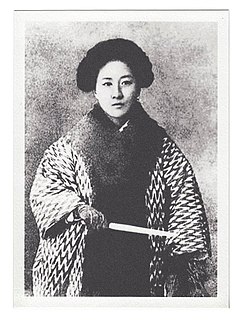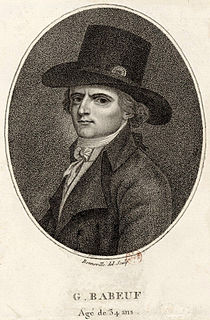A Quote by Thomas B. Macaulay
The highest eulogy which can be pronounced on the Revolution of 1688 is this that this was our last Revolution.
Related Quotes
Human rights did not begin with the French Revolution...[they] really stem from a mixture of Judaism and Christianity...[we English] had 1688, our quiet revolution, where Parliament exerted its will over the King...it was not the sort of Revolution that France's was...'Liberty, equality, fraternity' - they forgot obligations and duties I think. And then of course the fraternity went missing for a long time.
The white man knows what a revolution is. He knows that the Black Revolution is worldwide in scope and in nature. The Black Revolution is sweeping Asia, is sweeping Africa, is rearing its head in Latin America. The Cuban Revolution - that's a revolution. They overturned the system. Revolution is in Asia, revolution is in Africa, and the white man is screaming because he sees revolution in Latin America. How do you think he'll react to you when you learn what a real revolution is?
A revolution is bloody. Revolution is hostile. Revolution knows no compromise. Revolution overturns and destroys everything that gets in its way. And you, sitting around here like a knot on the wall, saying, “I’m going to love these folks no matter how much they hate me.” No, you need a revolution. Whoever heard of a revolution where they lock arms, as Reverend Cleage was pointing out beautifully, singing “We Shall Overcome”? Just tell me. You don’t do that in a revolution. You don’t do any singing; you’re too busy swinging.
First, what is a revolution? Sometimes I'm inclined to believe that many of our people are using this word "revolution" loosely, without taking careful consideration [of] what this word actually means, and what its historic characteristics are. When you study the historic nature of revolutions, the motive of a revolution, the objective of a revolution, and the result of a revolution, and the methods used in a revolution, you may change words. You may devise another program. You may change your goal and you may change your mind.
A revolution is bloody, but America is in a unique position. She's the only country in history in a position actually to become involved in a bloodless revolution. The Russian revolution was bloody, Chinese revolution was bloody, French revolution was bloody, Cuban revolution was bloody, and there was nothing more bloody then the American Revolution. But today this country can become involved in a revolution that won't take bloodshed. All she's got to do is give the black man in this country everything that's due him, everything.
Revolution is only truly revolution if it is a continuous struggle-not just an external struggle against an enemy, but an inner struggle, fighting and subduing all negative aspects which hinder or do damage to the course of the revolution. In this light, revolution is ... a mighty symphony of victory over the enemy and over oneself.
We have become the new american slaves: but there is a revolution coming. It is a revolution of individual liberty. It will free us without violence. It will begin with the self. It will spread to the workplace. It will turn our corporate masters into our servants. It will free us of government's tyranny. The revolution will spread to all corners of the nation, and at last, we shall be free.
As to the history of the revolution, my ideas may be peculiar, perhaps singular. What do we mean by the revolution? The war? That was no part of the revolution; it was only an effect and consequence of it. The revolution was in the minds of the people, and this was effected from 1760 to 1775, in the course of fifteen years, before a drop of blood was shed at Lexington.
The word 'revolution' first brings to mind violent upheavals in the state, but ideas of revolution in science, and of political revolution, are almost coeval. The word once meant only a revolving, a circular return to an origin, as when we speak of revolutions per minute or the revolution of the planets about the sun.





























